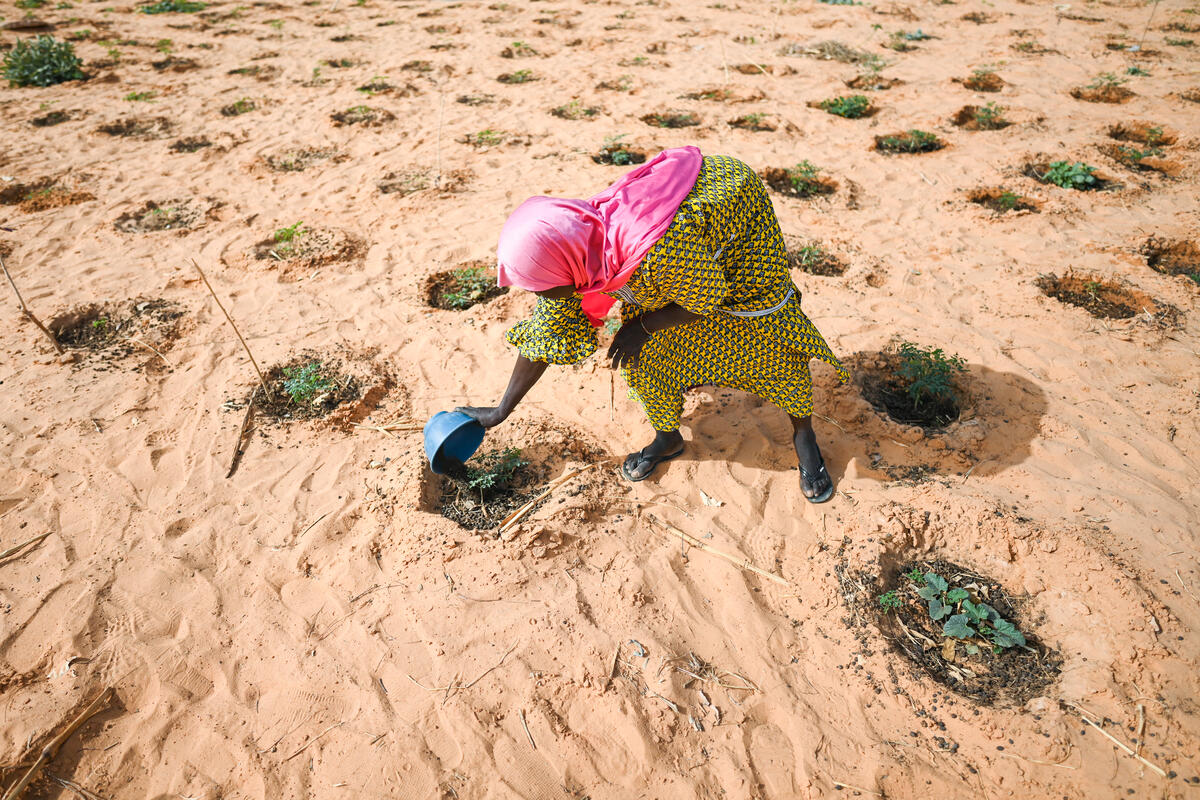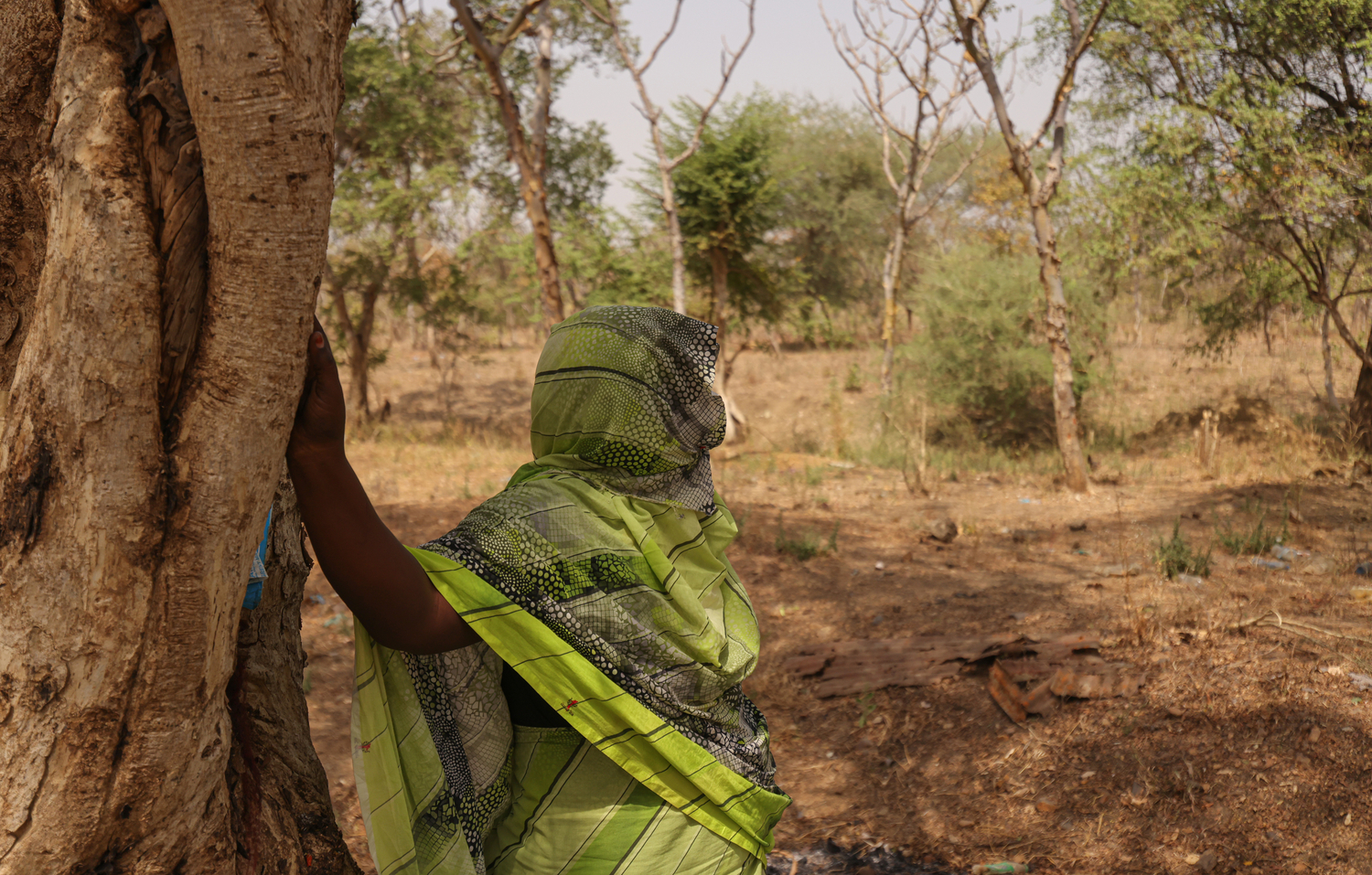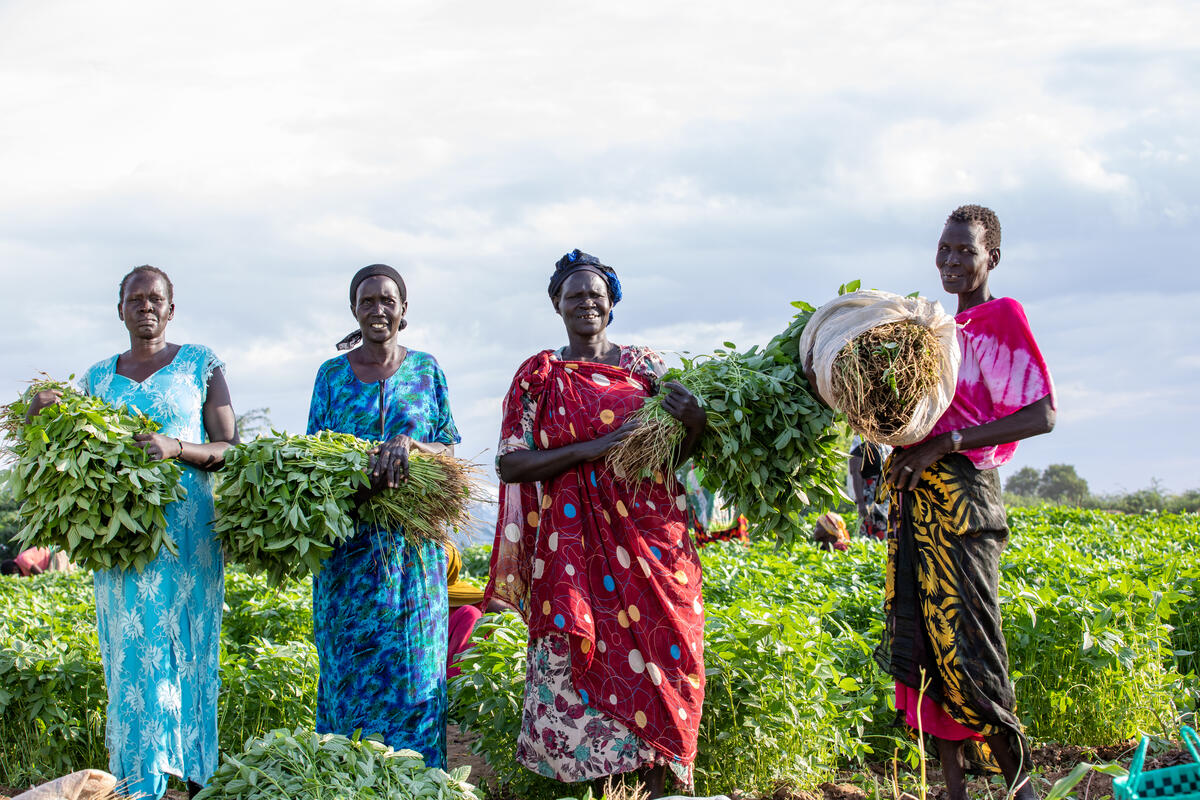International Women's Day 2015: Former Kinshasa cabbie earns a crust feeding refugees and aid workers
International Women's Day 2015: Former Kinshasa cabbie earns a crust feeding refugees and aid workers

SHERKOLE CAMP, Ethiopia, March 6 (UNHCR) - Every morning, just before 4am, Masika Basemé-Jeanne reaches for the snooze button on her mobile phone alarm. She'd love to continue dreaming of her former life with her husband and driving her taxi around Kinshasa, but she knows there are 1,500 loaves of bread to be baked.
The 47-year-old Congolese lives in Sherkole refugee camp, western Ethiopia, arriving a little over two years ago. Uprooted from a happy life in Kinshasa, capital of the Democratic Republic of the Congo (DRC), she and her family had ended up in the North Kivu province town of Butembo in 2012.
But she went on the run again in 2013 after her husband, perceived to be a human rights activist, was killed. Masika made her way via Uganda and Kenya to Sherkole, one of three refugee camps around the town of Assosa. She lives there with her mother and five children.
"I wanted to go far, far away," she says. "But when I arrived in Sherkole, I didn't have a lot of money for me and my kids. I looked for jobs, applied for jobs but I felt no-one could help me, so that's why I set up my small restaurant," she adds, perched on a bench in the eatery.
In those tough, early weeks and months, Masika struggled to survive. She kept half her wheat ration to feed her family and sold the rest to buy meat and vegetables to prepare food from a small stall in the camp. With time and experience, she became more confident and even established credit lines with the local butchers to help keep her nascent business afloat.
Masika's first big break came a year ago, when the International Rescue Committee asked her to provide food for 150 people at their International Women's Day event in the camp. It was the biggest job she had ever done, but the day was a great success and led to contracts with UNHCR and other agencies, in line with their support for income-generation projects.
Her second break came late last year when another UNHCR partner, the Norwegian Refugee Council, gave 6,000 Ethiopian birrs (about US$300) to Masika and three partners to help expand the business. With the money, they bought stocks of flour, oil and yeast and built a Sudanese-style oven behind a new, bigger, restaurant.
Every day, she bakes 1,500 small loaves of bread for sale, at one birr each, in the restaurant, local market and around the camp. In the restaurant, which Masika runs with her family, the menu is simple: beef, rice and beans for 20 birrs or fish, vegetables and wheat ugali (a starchy staple) for 30 birrs. "Everybody likes it," she insists, with a big smile. She also sells vegetables from a stall.
Masika's clients include UN staff and aid workers looking for a tasty lunch after a hard morning's work as well as refugees with a bit of disposable income. She also lets some people pay on credit, mindful of the kindness she received during the tough early days in Sherkole camp.
But despite the popularity of her restaurant, Masika admits that it is sometimes tough for her and her partners to keep things afloat. Often she can go three days without selling anything and even Monday's market day can be disappointing, but she is a very determined woman.
"We get by, but it's not easy," she says. "There are limited means for everyone in the camps. I often wish that someone could open a training centre for young people in the camp so they could learn skills like my daughter, who braids hair," Masika adds as she stirs a pot of bubbling beef stew for lunch clients.
Mallory Mroz, head of the UNHCR team in Sherkole, said that as International Women's Day approached, "Masika's persistence and ambition is an inspiration to us all." He also noted that self-sufficiency restores the dignity of individual refugees and empowers communities to rebuild their lives.
Masika clear thrives on hard work and on helping others. Aside from running a business and cooking every day, she is also looking after three orphans, aged three, five and seven, while their elder siblings are in Addis Ababa for medical reasons.
As she makes the most out of a tough situation, Masika also thinks of the future and dreams of "a life where I and my family can all live together in a big French-speaking city." But, for now, those dreams must end each morning as the familiar digital beeps of her alarm wake her at the dawn of a new day.
By Andy Needham in Sherkole Camp, Ethiopia








